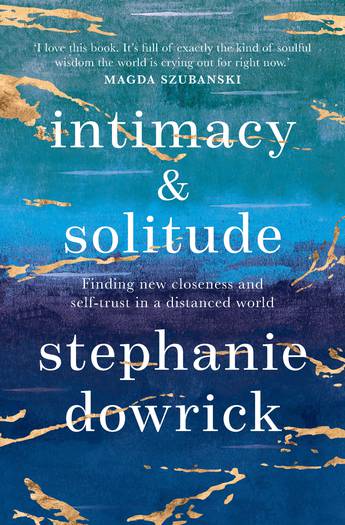INTIMACY AND SOLITUDE
Stephanie Dowrick
Allen & Unwin
REVIEWED BY PETER STUPPLES
Stephanie Dowrick’s Intimacy and Solitude was first published in 1991. It was revised and expanded in 2002 and this is the third, and ‘‘updated’’, edition.
Dowrick was born in Wellington but left New Zealand to work in London for many years, where she founded and directed The Women’s Press. Since 1983 she has lived in Sydney.

The first edition was subtitled A Self-Therapy Book. This third edition bears the subheading ‘‘Finding new closeness and self-trust in a distanced world’’. It is divided into five parts: Self: Is that who I am?; Women and men; Solitude: Knowing your self; Intimacy: Knowing the other and Desire: The language of your inner space.
In changing the subtitle, and shifting the emphasis somewhat, Dowrick has produced a book that sits uneasily between the ‘self-help’ model and a recasting of psychotherapeutic thinking for navigating the world of the 21st century. That world has a greater tolerance of difference in lifestyle options and sexual relating than in the not-so-distant past.
That said, Dowrick’s approach is still firmly based on Freud-Klein-Winnicott, classical psychoanalytic writing of the 20th century.
This foundation is reflected in the rich bibliography. The writing is enlivened and grounded with quotations from Dowrick’s notes from interviews, as well as observations from her own life experience. This makes for an anecdotal liveliness that leavens the complexities but may, for some, dilute the theory and the science. There is no discussion of the way neuroscience, for example, fuses body and mind, highlighting biological triggers of behaviour. That is, Dowrick’s book may be too heavy for some but too light for others.
However, the author confidently addresses the way in which a strengthening of self-understanding may assist us within a range of social circumstances.
‘‘A reliable sense of self helps most. And it’s important to note... that this mysterious ‘sense of self’ doesn’t have to exist before you begin to work on... issues of negotiating and getting along with others. It cannot. Our sense of self develops as we grow in self-awareness and - more crucially still - in awareness of how we affect other people, recognising what choices we have about that, however ‘driven’ by our emotions we may sometimes feel.’’
Peter Stupples, now living in Wellington, used to teach at the University of Otago











